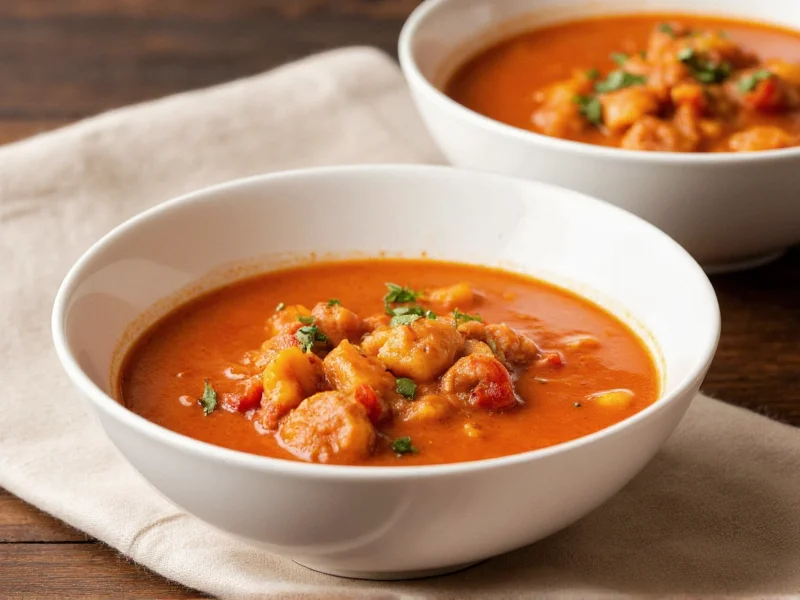When exploring premium soup options, Rao's stands out as a brand committed to quality ingredients and traditional preparation methods. Unlike many mass-market soup brands that rely on preservatives and artificial flavors, Rao's soups feature short ingredient lists with recognizable components. The brand's commitment to quality extends to their cooking process - each soup is slow-simmered to develop rich, complex flavors that capture authentic Italian culinary traditions.
The Rao's Soup Product Line
Rao's offers several soup varieties that appeal to discerning consumers seeking restaurant-quality flavors at home. Their lineup includes classic options like Tomato Basil, Chicken Soup, and Minestrone, each formulated with premium ingredients. What distinguishes Rao's soups is their adherence to simple recipes without artificial additives, thickeners, or preservatives commonly found in conventional canned soups.
For those wondering are rao's soups gluten free, the brand maintains a careful approach to dietary considerations. While not all varieties are certified gluten-free, Rao's clearly labels products that meet gluten-free standards, making it easier for consumers with dietary restrictions to make informed choices. The brand's transparency about ingredients addresses common concerns about rao's soups ingredients and nutritional content.
Quality Assessment of Rao's Soup Products
When evaluating is rao's soup healthy, several factors contribute to its premium positioning. Rao's soups typically contain lower sodium levels than many competitors while maintaining robust flavor profiles. The brand avoids artificial ingredients, focusing instead on slow-cooking techniques that develop natural flavors without requiring excessive salt or additives.
| Feature | Rao's Soups | Standard Premium Soups | Economy Soups |
|---|---|---|---|
| Ingredient Quality | High (simple, recognizable) | Moderate | Low (artificial additives) |
| Sodium Content | Moderate (20-30% less than average) | High | Very High |
| Cooking Method | Slow-simmered | Quick-cooked | Mass-produced |
| Price Point | Premium ($3.50-$4.50/can) | Moderate ($2.50-$3.50/can) | Economy ($1.50-$2.50/can) |
How Rao's Compares to Other Premium Soup Brands
When conducting a rao's soups vs other brands comparison, several differentiators emerge. While brands like Amy's and Pacific Foods also offer organic and natural options, Rao's distinctive approach focuses specifically on Italian-inspired recipes with authentic flavor profiles. The brand's commitment to traditional preparation methods sets it apart from competitors who may use modern processing techniques to achieve shelf stability.
For home cooks wondering how to use rao's tomato soup, the product's versatility extends beyond simple consumption. Many culinary enthusiasts incorporate Rao's soups as bases for more complex dishes, leveraging their high-quality foundation to build restaurant-worthy meals with minimal effort. The clean ingredient profile makes Rao's soups particularly suitable for modifying recipes without introducing unwanted flavors or textures.
Practical Considerations for Consumers
Understanding rao's soup nutrition facts helps consumers make informed decisions. While specific values vary by flavor, Rao's soups generally provide balanced nutritional profiles with moderate calorie counts, reasonable sodium levels, and meaningful vegetable content. The brand's avoidance of artificial ingredients appeals to health-conscious consumers seeking cleaner eating options without sacrificing convenience.
When considering where to buy rao's soups, the product is widely available in major grocery chains, specialty food stores, and online retailers. The brand's growing popularity has expanded its distribution beyond initial specialty markets into mainstream supermarkets, making it increasingly accessible to consumers seeking higher-quality soup options.
Value Proposition Analysis
The premium pricing of Rao's soups reflects their commitment to quality ingredients and traditional preparation methods. For consumers evaluating whether Rao's soups represent good value, the key consideration is whether the superior flavor profile and cleaner ingredient list justify the higher cost compared to standard soup options. Many consumers find that the enhanced taste experience and absence of artificial ingredients make Rao's a worthwhile investment for regular soup consumption.
Conclusion
Rao's soups have established themselves as a premium option in the competitive soup market by focusing on quality ingredients, traditional preparation methods, and authentic flavor profiles. Their commitment to minimal processing and avoidance of artificial additives appeals to consumers seeking healthier, more natural convenience food options. While priced higher than standard grocery store soups, many consumers find the superior taste and cleaner ingredient profile justify the investment for regular consumption.
Are Rao's soups gluten free?
Rao's offers several gluten-free soup varieties, clearly labeled as such. However, not all their soups are gluten-free, so consumers should check individual product labels for specific dietary requirements.
What makes Rao's soups different from other brands?
Rao's soups distinguish themselves through slow-simmered preparation methods, simple ingredient lists without artificial additives, and authentic Italian-inspired recipes that prioritize flavor development over shelf stability.
How does Rao's soup sodium content compare to other brands?
Rao's soups typically contain 20-30% less sodium than comparable premium soup brands while maintaining robust flavor profiles through slow-cooking techniques rather than excessive salt.
Can Rao's soups be used as a base for other recipes?
Yes, many home cooks use Rao's soups as high-quality bases for more complex dishes. Their clean ingredient profile and developed flavors make them excellent starting points for soups, stews, and sauces requiring minimal additional modification.
Where can I find Rao's soups in stores?
Rao's soups are widely available in major grocery chains including Whole Foods, Kroger, Publix, and Wegmans, as well as specialty food stores and online retailers like Amazon.











 浙公网安备
33010002000092号
浙公网安备
33010002000092号 浙B2-20120091-4
浙B2-20120091-4